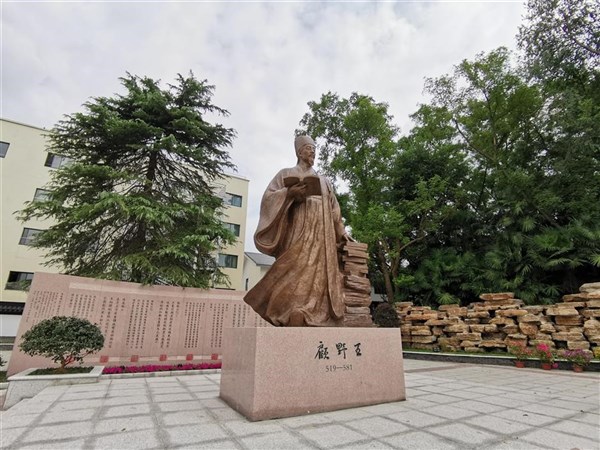今日上海
上海简称“沪”的由来 - 2019年09月19日
Remembering the man behind 'hu'

Most people know that Shanghai’s abbreviation is "hu," but few know what this word originally means and how it came to refer to the city.
It can all be traced back over 1,500 years ago, when Gu Yewang (519-581), a mandarin and historian who lived during the Liang (502-557) and Chen (557-589) dynasties, traveled to Shanghai, or more accurately, the place that is now Tinglin Town in Jinshan District. During his trip he wrote a collection of geographical essays called "Yudizhi," which is also one of the first works of places names in China.
The original text of Gu’s essays has been lost. But the essays were often quoted or referenced in the writings of later generations.
One essay from "Yudizhi" meticulously described a kind of bamboo harpoon and fence that local fishermen used to catch fish. The device was called a "hu."
“Fish flood into the upper streams with the tide in the morning, and the fishermen stick the ‘hu’ in. When the tides became low as sun set, they harvest the fish trapped by the fence,” Gu recorded.
The fishing tool recorded by Gu gradually became a symbol of the area, which was called Hudu at the time. “Du” means river estuary.
“Hu” survives until today as the official abbreviation of the city.
This year marked the 1,500th anniversary of Gu’s birth.
Gu was born Gu Tilun but later changed his name to Yewang after Feng Yewang, an accomplished mandarin who lived during the Han Dynasty (202 BC-8).
It is said that Gu eventually became a hermit in what's now Shanghai after leading an army to protect the Liang Dynasty from a military rebellion between 548 and 551.
It is also said that Gu built a cottage and a small pavilion in the woods. This place became known as Tinglin, and this name is still in use today.
The woods where Gu once lived is now a cultural site called Dushudui.
To commemorate Gu and his legacy to Shanghai, Tinglin officials have built a cultural center and a square near Dushudui.
On Wednesday, Jinshan District welcomed several descendants of Gu and organized a leadership seminar in Tinglin.
Gu Hengyi, a historian who spent his career gathering and annotating the scattered traces of "Yudizhi," donated all of his materials related to his ancestor to Tinglin Town.
Famous Kunqu Opera singer Gu Weiying, said she is now writing a new opera that will tell the story her ancestor.
Jiang Zhiming, head of Shanghai Gu Yewang Research Institute, said Gu traced his own ancestry to Gu Yong (168-243), the grand chancellor to Sun Quan, the king of Wu during the Three Kingdoms era.
The spirit of Gu will carry on into the future as Tinglin Town and East China Normal University signed an agreement on Wednesday to establish an institute dedicating to the research of Gu Yewang and Jiangnan Culture.
